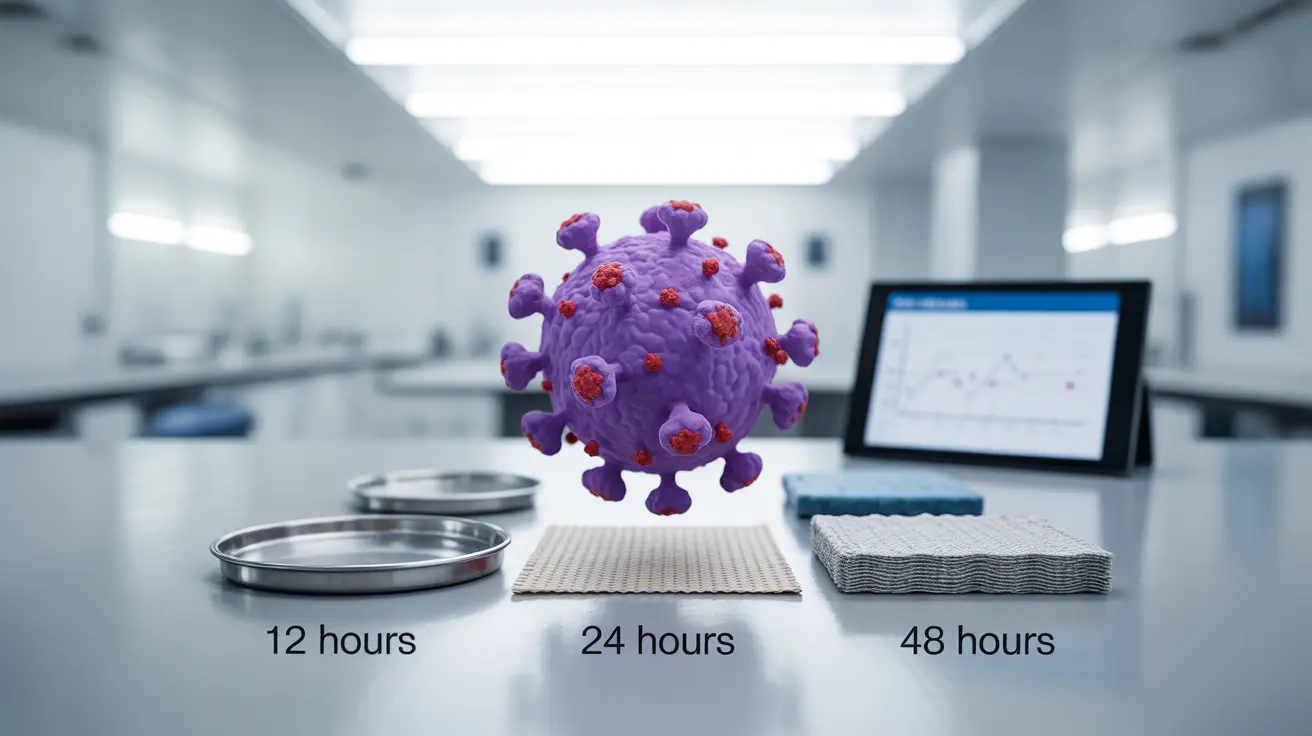Understanding how long the herpes simplex virus (HSV) can survive outside the human body is crucial for addressing concerns about transmission risks through everyday activities. This comprehensive guide examines the science behind HSV survival on surfaces and clarifies common misconceptions about transmission.
The Science of HSV Survival Outside the Body
The herpes simplex virus is a relatively fragile organism that cannot survive for extended periods outside its preferred host environment - the human body. Once exposed to air and typical environmental conditions, the virus begins to lose its ability to cause infection rapidly.
Research indicates that HSV typically becomes inactive within a few hours after leaving the human body. The exact survival time can vary depending on environmental factors such as temperature, humidity, and the type of surface.
Survival Times on Different Surfaces
Smooth Surfaces
On smooth, non-porous surfaces like plastic, metal, or ceramic:
- Generally survives for 2-4 hours maximum
- Survival time decreases significantly in dry conditions
- UV light exposure further reduces viability
Fabric and Porous Materials
On materials like towels, clothing, or fabric:
- Usually becomes inactive within 1-2 hours
- Moisture can slightly extend survival time
- Regular washing and drying effectively eliminates the virus
Understanding Transmission Risk
Despite concerns about environmental transmission, it's important to understand that HSV requires specific conditions to spread from person to person:
- Direct skin-to-skin contact with infected areas
- Contact with active sores or viral shedding
- Mucous membrane exposure
- Immediate transfer of bodily fluids
Common Misconceptions About HSV Transmission
Many people worry unnecessarily about catching herpes from everyday objects. The reality is that casual contact with surfaces poses minimal risk because:
- The virus degrades quickly outside the body
- Environmental conditions are typically hostile to virus survival
- Transmission requires direct contact with infected areas
- Brief surface contact is unlikely to transfer sufficient viral load
Prevention and Safety Measures
While environmental transmission risk is low, taking reasonable precautions during active outbreaks can provide peace of mind:
- Practice good hand hygiene
- Avoid sharing personal items during outbreaks
- Keep infected areas covered when possible
- Maintain cleanliness of frequently touched surfaces
Frequently Asked Questions
How long can herpes simplex virus survive outside the body on different surfaces?
The herpes simplex virus typically survives for only a few hours outside the body, with most viruses becoming inactive within 2-4 hours on non-porous surfaces and 1-2 hours on porous materials.
Can I get herpes from sharing drinks, glasses, or straws with someone who has an active outbreak?
The risk of contracting herpes from shared drinks or utensils is extremely low. The virus requires direct skin-to-skin contact or mucous membrane exposure for transmission, and it degrades quickly on surfaces exposed to air and typical environmental conditions.
Is it possible to catch herpes from touching objects like toilet seats, towels, or doorknobs?
While technically possible, the risk of contracting herpes from everyday objects is minimal. The virus becomes inactive quickly outside the body and requires immediate transfer to cause infection.
How is herpes mainly transmitted between people if not through sharing kitchenware?
Herpes is primarily transmitted through direct skin-to-skin contact with infected areas, especially during periods of active outbreaks or viral shedding. This includes intimate contact, kissing, or other forms of close physical contact with infected areas.
What precautions can I take to reduce the risk of herpes transmission during an outbreak?
During an outbreak, avoid direct contact with the infected area, practice good hygiene, avoid sharing personal items, keep sores covered when possible, and wash hands frequently. Consider abstaining from intimate contact until the outbreak has cleared.




